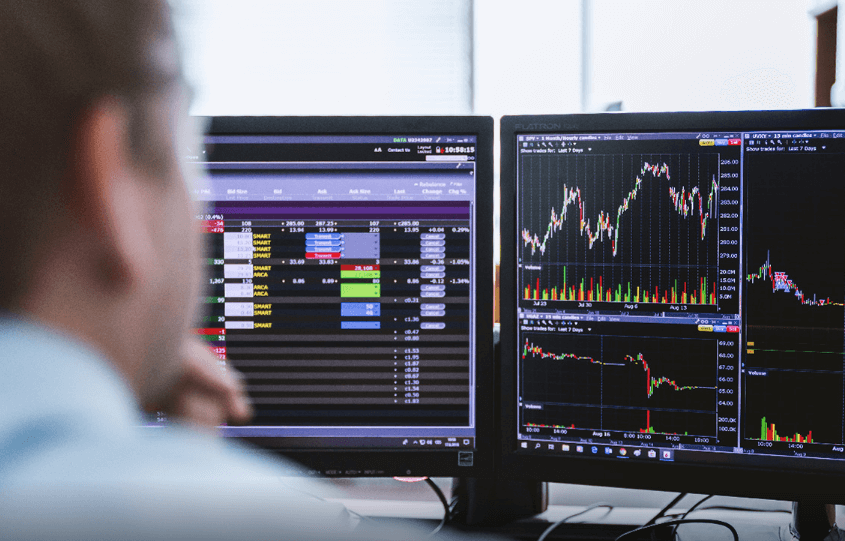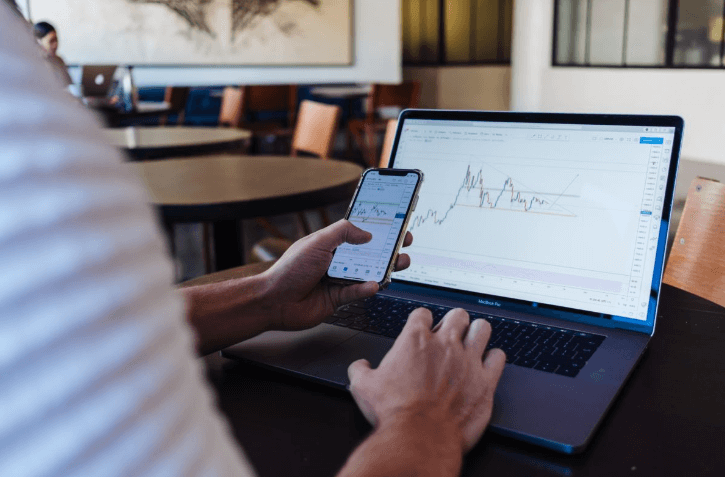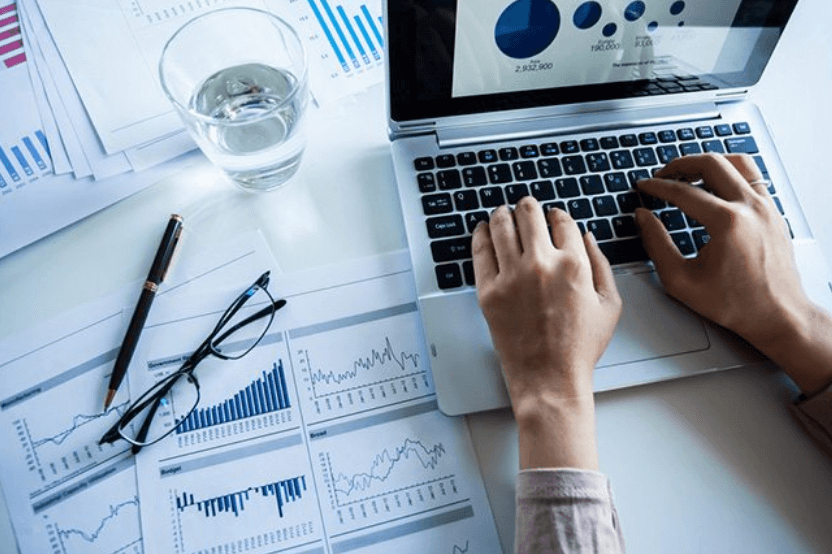Forex Trading in South Africa is on the rise. Forex Trading or Foreign Exchange is a very popular gateway among the people throughout the world. In this # 1 Guide to Forex Trading in South Africa, you will learn more about Forex Trading SA and how you can join a list of successful Forex Traders in South Africa. In this Forex Trading South Africa guide, we also list the best Forex brokers in South Africa for 2023. Forex trading is legal in South Africa and many South Africans are joining the foreign exchange market. This is why Forex Trading SA and Forex Trading South Africa are the most searched keywords on Google South Africa. To quench your thirst about Forex Trading SA, we are presenting you a complete beginner’s guide on forex trading in South Africa. From this guide to Forex trading South Africa, you will come to know about everything about Forex in South Africa. Wherever you are now in the world, you will get all the required knowledge and terminologies of Forex trading SA.
Forex Trading SA : Guide to Forex Trading South Africa

Forex Trading South Africa
Forex trading in South Africa is legal and any South African citizen can legally trade in the Forex market through any FSCA (Financial Sector Conduct Authority) regulated Forex broker authorized for offering Derivative instruments to South African Forex traders. Many unregulated Forex brokers in South Africa have come up recently, most of them are running ponzi schemes and scamming people. After reading this Forex trading SA guide, you will know how to identify regulated and unregulated brokers in South Africa.
What is Forex Trading?
Forex (Foreign Exchange Market) is, in fact, an interbank market that allows purchasing and/or selling currencies worldwide under the floating exchange rate regime, i.e. variable according to supply and demand. In addition, Forex trading is the largest financial market in the world, open 24 hours a day. All the Forex brokers and platforms from forex trading South Africa are also open for 24 hours.
The most-traded currencies in this market are the dollar, euro, pound sterling and Japanese yen. Forex Trading, therefore, allows you to establish the exchange rates of different currencies. Central banks, banks and financial institutions, hedge funds, speculative institutional investors, individual investors are actually the main forex players.
You can trade foreign exchanges from any country online. It is very easy and convenient. This is the reason foreign exchange is now very popular in the world. Forex is also very demanding in South Africa.
What Is the Forex Market?
In the economy, supply and demand is a model that explains the formation of prices in a free competitive market. You know what? The similar norm or trend like in the economy of supply and demand attributes to the Forex trading.
The price goes up due to the time when demand is created in the market by purchasing currency. On the other hand, an excess of supply appears when currency is sold in each time, which indeed pushes the price of the currency down. The impact of each purchase and sale on the foreign exchange market is directly proportional to the trading volume of each transaction. The equilibrium price philosophy is the key to understanding how online currency trading works, as all economic events in the world, have an impact on the market. This is how the foreign exchange market revolutionarily attracted the attention of the investors throughout the world. Forex Trading in SA is very popular here in South Africa.
Understanding Currency Pairs
A currency pair is actually a quote of two different currencies. This is the amount you would pay in one currency per unit of another currency. For instance, when a trader quotes EUR / USD 1.13, this implies he can exchange 1 euro and get 1.13 USD.
At the point when the estimation of one cash transforms, it changes according to another currency. In the event that tomorrow the euro/dollar quotes go from 1.13 today to 1.15, this implies the euro has reinforced against the US dollar, or that the dollar has deteriorated against the euro, since purchasing 1 euro will cost more than US dollars. Understanding currency pairs’ roles in foreign exchange will surely help you to trade foreign exchange magnificently from any part of the world, even form Forex Trading South Africa.
A Brief History of Forex

Forex Trading / image credit: pexels.com
In spite of the fact that the idea of fiscal trade goes back thousands of years, the formation of the present type of Forex trading goes back to 1971, after the relinquishment of the Bretton Woods Agreement. Since that year, this money advertise has gotten one of the biggest monetary focuses on the planet. Besides, Forex is utilized by the biggest money related organizations for simply theoretical purposes.
History of Forex before 1971
The arrangement of the worldwide foreign exchange market has not generally been as it is today since many exchanging frameworks have been utilized before. In any case, these frameworks have added to the contemporary structure of Forex. These exchanging frameworks incorporate the best quality level of 1875 and the Bretton Woods Agreement of 1944.
The gold standard, the ancestor of Forex
The highest quality level was the main global money related framework and was made in 1875 to institutionalize the methods for cash transformation between nations. In that capacity, the presentation of the best quality level was unrest for the universal money showcase. This framework ensured monetary standards on the estimation of gold, and to do as such, nations developed a huge gold reserve.
Budgetary exchanges were then estimated in ounces of gold and the conversion scale between two monetary forms was then characterized by the value differential of an ounce of gold. Nonetheless, this framework demonstrated shortcomings before the First World War, remarkably because of an absence of gold brought about by a weapons contest among the European monetary forces.
The Bretton Woods monetary system
- The Bretton Woods money related framework was started by 45 countries in July 1944, preceding the end of World War II. The understanding acknowledged the US dollar as the base money for fiscal trade and this cash was convertible into gold. For this reason, a fixed rate was set up, assessing an ounce of gold at $35. Also, world monetary standards were esteemed against the dollar. In any case, following 25 years of utilization, the Bretton Woods Convention was surrendered for the accompanying reasons:
- exchange rate instability following post-war reconstruction in the 1950s
- the use of the dollar as the sole base currency.
Forex since 1971
The year 1971 marked a turning point in the history of the Foreign Exchange. Indeed, it is from this year that the floating regimes, characteristic of contemporary Forex, were introduced.
The end of the Bretton Woods system
In 1971, the Bretton Woods Convention was surrendered because of the financial circumstance at that point. What’s more, the sanction of the Smithsonian understanding dropped the convertibility of the dollar into gold. From that date on, all monetary standards got gliding.
The debit/credit framework was conceived and after 1973 the budgetary market got more liberated. A few industrialized countries had their monetary forms coasting and the swapping scale was presently controlled by market interest on the Forex. This improvement additionally brought about more prominent swapping scale instability.
The development of Forex
Since 1972, Forex trading has built up a great deal dependent on the arrangement of market interest. Trades are made openly between the various players in the framework, including banks, business houses, dealers…for sure, trade rates are not fixed and this unpredictability is increasingly helpful for hypothesis on stock exchange esteems.
From the 1980s onwards, the advent of electronics and computers made it possible to estimate on Forex over a more drawn out hourly period. These mechanical methods additionally made it conceivable to estimate remotely on the money advertise, by sending orders by phone for instance. At long last, Forex has additionally opened up to medium-sized speculators and people through these advances.
Contemporary Forex
In a quarter of a century, the foreign exchange market has become an essential market for the international monetary system Open 7 days per week and 24 hours per day, this market is held for both huge monetary establishments and people. Furthermore, these substances can guess on worldwide trade rates because of the correspondence advances accessible on Forex.
The Future of Forex
Given the significance of Forex for money exchanging, this market despite everything has a splendid future in front of it. Its supply and demand based concept benefits the investors who take part in it. Likewise, the extraordinary opportunity for exchanges offered by this framework is a further preferred position. The experts claim that the forex trading future in the world is indeed very prospects. This is why the demand for foreign exchange is increasing throughout the world. Forex trading South Africa is also growing rapidly to prove the necessity of foreign exchange among South African citizens.
Trades & Key Terminology

Forex Trading SA / image credit: pexels.com
The first thing that a novice Forex trader needs to master is the basic terms and concepts that are used in trading in the foreign exchange market. Forex trading SA people also need to master the basic terms and concept of the foreign exchange market. The dictionaries for Forex traders, binary options traders and stock traders have a lot in common, but there are specific terms that we are analysing for you.
Forex – the foreign exchange market. The Forex market does not have a single centre or stock exchange but represents all foreign exchange trading in the world. Forex trading involves banks, funds, financial institutions and brokers through which private trader’s trade.
Forex broker – a company that acts as an intermediary between the Forex market and a private trader. The need for such an intermediary stem from the high minimum investment that can be avoided by trading with leverage.
Leverage (leverage) – the number of funds borrowed from the broker, with which traders can trade larger amounts than their own. In leveraged trading, risks are limited only by the trader’s own funds (margin). The amount of leverage is expressed in relation to the trader’s own funds in relation to the funds borrowed by the broker. For example, a leverage of 1:100 gives the trader the opportunity to trade with amounts exceeding his own 100 times.
Margin (or pledge) – the amount of trader’s own funds participating in leveraged trading. For example, to open a position with a leverage of 1:100, a trader will need to have 1% of the transaction amount in the account as margin. It is through margin that losses in leveraged trading are covered.
Exchange rate (quote) – the price of one currency expressed by another currency. The quote is displayed as a symbol and price, for example, EUR / USD 1.1672.
Symbol – an abbreviation for a particular currency pair. The symbol is formed from the generally accepted letter codes of two currencies. For example, the AUD / JPY symbol means the currency pair “Australian dollar / Japanese yen”. The base currency is the currency in the symbol on the left. For example, for the USD / CHF currency pair, the base currency will be the US dollar.
Quoted currency – For example, for a USD/CHF pair, the quoted currency will be the Swiss franc.
Dot – the minimum unit of change in quotation marks. As a rule, it is usual to consider the fourth digit after the decimal point as a dot, for example, if the quote EUR / USD changed from 1.1672 to 1.1673, then it changed by one dot. However, there are exceptions, e.g. for the currency pair USD / JPY, the second digit after the decimal point is considered a point.
Ask – the price to buy the base currency.
Bid – the price to sell the base currency.
Spread – the difference between Ask and Bid. This difference is the commission that the broker establishes and through which he earns.
Foreign exchange position (position) – agreement to buy or sell a currency.
Lot – a unit of measurement for the volume of a transaction used in Forex. 1 lot consists of 100,000 units of the base currency.
Order (order, application) – an indication to the broker to open or close a position.
Market order – an indication to the broker to open or close a position at the current market price.
Pending order (limit order) – tells the dealer to automatically open or close a position when a certain price is reached.
Stop Loss – tells the dealer to automatically close a losing trade when a certain price is reached.
Take Profit – tells the broker to automatically close a profitable trade when a certain quota is reached.
Swap (rollover) – transfer transactions overnight, i.e. the next day. It is positive (a certain commission is taken from the account) and negative (the commission is withdrawn from the account). A swap results from the interest rate difference of the exchanged currencies.
Spot Market and the Forwards & Futures Markets
Forex can be of two types that each of you should know before you start trading forex whether you are from South Africa or from any other country:
- The spot currency market (the spot market )
- The currency forward market (forward exchange through future currency contracts)
The spot currency market (or spot) brings together all of the Forex transactions which constitute an instant purchase and sale of currencies. You buy the Euro-Dollar parity in cash, so you immediately buy Euro and sell Dollar at the same time. The transaction is carried out over time, which is calculated as soon as the exchange takes place and there are hundreds of thousands per second.
Forex for Hedging
Hedging positions in the foreign exchange market is fundamental, which is why many forex brokers offer this option to their clients. Forex trading in South Africa also does the same. Forex hedging is defined as a transaction going in the opposite direction of an open position. It can be total or partial and allows the investor to close a position that will still produce the desired effects.
To protect their operations, Forex traders in South Africa use different techniques such as forward exchange or futures contracts. These options make it possible to guarantee the future price of a currency independently of its actual development. The forward exchange rate is determined by the interest rates on the two listed currencies. This tool can be used to reduce some of the risk associated with trading at any time. Note, however, that both do not provide the opportunity to profit from exchange rate fluctuations that may occur before the end of the scheduled term.
The consequence of this is that some traders will prefer to use currency options. If you don’t know what a currency option is, it is a product that gives its buyer the possibility to buy or sell a currency until and/or on a certain date, at a rate originally fixed, in return for the payment of a premium. With this product, the buyer’s risk is limited to the loss of the premium while being in a situation of theoretically unlimited gains.
By applying a hedge to your trading operations, you will strongly limit the risks taken. As there are different ways of doing this, you will easily find the one that suits you best.
Forex for Speculation
Forex speculation is driven by the potential for extremely large profits and benefits. The Forex speculation is often carried out by large financial institutions and hedge funds. Individual investors are also increasingly speculating on forex, but their influence is obviously very limited, although their number is growing. A speculator will buy when he considers that the exchange rate of one currency should rise against another currency in order to sell it at a higher price and conversely will position himself as a seller on the same currency if he anticipates a devaluation of it against another currency. Forex makes it possible to take long (long) or short (short) positions depending on the investor’s expectations of the evolution of currency exchange rates. Forex for speculation is also found in Forex trading in South Africa.

Forex South Africa / image credit: Google
Since exchange rates rarely vary by more than 1% during the day, it is theoretically difficult to make a profit unless you have a large amount of capital to invest in order to carry out your transactions. Leverage is, as the name implies, leverage that all forex brokers will make available to investors allowing them to make substantial gains. Leverage will vary depending on the intermediary (from 100 to 400 times the amount of capital deposited by the investor in his margin account). Forex speculators will use leverage to try to make profits by taking advantage of currency fluctuations. Of course, the speed and size of the gains (thanks to leverage) are equal to the losses that can be generated by the investor’s positions. In many cases, investors will make daily comings and goings (purchases/sales) on the forex, therefore for very short periods of time in search of interesting profits. This strategy is called day trading. It will most often consist of making pips for the duration of a trading day through repeated buying and selling of currencies. Forex Trading techniques, depending on investor appetite, may involve spot transactions with leverage, but may also involve the use of more sophisticated techniques such as currency options.
Forex speculation, therefore, implies a good knowledge of how it works and a good mastery of the techniques that can be implemented by the investor, otherwise, on the contrary, losses can be recorded very quickly.
What are the most traded currency pairs on the forex market?
According to Bank for International Settlements 2019, the following are the most traded currency pairs on the foreign exchange market. Even these are also the most traded currency in forex trading in South Africa.
- EUR/USD (euro/US dollar)
- USD/JPY (US dollar/Japanese yen)
- GBP/USD (British pound/US dollar)
- AUD/USD (Australian dollar/US dollar)
- USD/CAD (US dollar/Canadian dollar)
- USD/CNY (US dollar/Chinese renminbi)
- USD/CHF (US dollar/Swiss franc)
- USD/HKD (US dollar/Hong Kong dollar)
- EUR/GBP (euro/British pound sterling)
- USD/KRW (US dollar/South Korean won)
Why We Can Trade Currencies
Before the advent of the Internet, Forex trading was very difficult for individual investors. Most of the currency traders in South Africa were large multinational corporations, hedge funds or wealthy individuals because currency trading was a capital intensive activity.
With the help of the Internet, a retail market emerged that targeted individual traders, offering easy access to foreign exchange markets, either through the banks themselves or through brokers creating a secondary market. Most Forex brokers in South Africa or online intermediaries offer very significant leverage to individual traders who can control a large transaction with a small account balance. Same is also the picture in forex trading in SA.
How to Get Started with Forex in South Africa with a Forex Broker
Since forex trading is, in fact, a very lucrative and promising way to earn, choosing the right Forex broker will obviously help you to get greater profits. Let’s learn the most striking points to be considered before you select a forex broker.
- Study and double study security of the broker. Learn very well what securities the broker provides.
- Learn the transactional costs. Low transactional costs surely promise more profit.
- Know whether the broker allows you to deposit and withdrawal hassle-free earning or not. The transaction should be a speedy one.
- Check whether the trading platform of the broker is user friendly or not.
- Does the broker provide customer support facilities?
When you will check all the above points and find that the broker is really positive dealing with all these points, select this broker to trade with. You just need to register and start trading. All South African forex brokers have the online platform meaning you can trade online. Forex trading SA is also increasing due to the availability of greater trade online.
Learn Forex Trading in South Africa
We have already mentioned many important terminologies of forex trade. Carefully learn what we have already discussed. Keep your eyes on our page regularly to get the most important information on foreign exchange. Search internet also for more advanced knowledge. However, the more you trade, the more you will learn about the foreign exchange. Yes, experience matters!
There are actually two types of foreign exchange accounts. One is a micro forex account. You will obviously learn more through micro forex account than from the demo forex account.
Learning about the currencies you trade is also very important to learn forex trade or foreign exchange.
Above all, learn how to control emotion, which in fact will help you to manage the risk. Be very calculative about the risk factors. Don’t analyze the risk factors with emotions, rather use logic, knowledge, and experience.
How to start Forex trading in South Africa
Forex Trading SA can be joined by anyone with a mobile device or laptop with internet connection and enough money to start trading online. Most Forex brokers in South Africa require a minimum deposit of $250 (R3 500) to open a trading account. Here’s how you can get started with Forex.
- Connect Online
- Search for a Forex broker in South Africa
- Open the account
- Fund your account
- Download your online trading platform
- Place trades
How Forex trading works in South Africa
In the forex markets, financial instruments are presented in the form of currency pairs. As a result, every trading operation involves buying one currency and selling another at the same time. By buying a currency pair, the trader buys the base currency and at the same time sells the quoting currency. This is indeed a very important mechanism in forex trading. For example, if a trader buys the EUR/USD pair, this means that he is buying the euro and selling the dollar at the same time. In this case, the forex trader anticipates a rise in the rate of the euro against the dollar, or similarly a fall in the rate of the dollar against the euro.
By closing the buy position, the trader will buy the dollar and sell the euro. In practice, all this is done with a single click on the trading platform. Conversely, selling EUR/USD means selling the euro and buying the dollar. Note that it is not necessary to hold a certain currency to buy or sell it. With a Euro trading account, for example, you can buy and sell any currency pair. Again, it’s all done automatically with a single click.
Forex Trading Risks
Every coin has both sides. Similarly, forex trading also has some risk factors. Yes, it is true that forex trading brings a lot of financial benefits to the clients. Let’s focus on some risk factors of forex trading:
- Exchange rate risk is a risk that is caused by the value change of currency.
- Interest Rate Risk is a risk that refers to the loss and profit generated by the fluctuations and of mismatches of transaction in foreign exchange book.
- Credit risk is the risk that involves-not paying the outstanding currency position due to involuntary or maybe a voluntary action by a counterparty.
- Country Risk refers to the risk that sometimes some country bands a particular currency to trade in foreign exchange.
- Liquidity risk is a similar risk like the country risk. If a country bands a particular currency, you may not be able to perform transaction of that currency in that very country.
- Marginal or Leverage risk is such a risk when aggressive use of leverage will increase losses during periods of unfavourable performance
- Transactional risk involves – unforeseen losses due to the error of communication or handling and confirmation of a trader’s order.

Forex Trading Risks / image credit: piyushratnu.com
Pros and Challenges of Forex Trading
Before you start Forex trading, you should know that there are pros as well as challenges.
The Pros of Forex Trading
Forex trading has several advantages that may be of interest to the investor.
- A market that is accessible 24 hours a day, which gives the trader more flexibility in choosing working hours.
- High leverage, which gives established traders the opportunity to multiply their profits considerably.
- A very good alternative for beginner traders who may not have large amounts of agent money that would allow them to trade other more expensive financial products such as stocks for example.
- Existence of demo accounts that allow beginners to understand how different online forex brokers work without having to put their own money at risk.
- The trader has the possibility to have access to several developed trading platforms that provide him with technical tools to analyze currency rates in a strategic way.
The Challenges of Forex Trading
Forex trading is an investment that can be very profitable indeed. But like any other activity, it also has drawbacks, the cons, the challenges that every trader should consider long before starting to trade. It is a very volatile market and also has a very high degree of leverage. This can sometimes be interesting, but it is also something very risky that can cause you to lose huge amounts of money and cause your financial ruin in just a small fraction of a second.
Conclusion
We can say that Forex trading in South Africa is a very advantageous activity that you can access easily. Yes, we know that Forex South Africa is also increasing. But in order for you to take advantage of Forex trading SA, you will have to work hard on several technical and psychological aspects so that you can later establish the right strategy that will allow you to have a good reflex, manage the risks and succeed in the long run. Wish you all the best to trade enthusiastically whether you are from South Africa or any other country around the world.
Forex Trading FAQs
Is Forex trading legal in South Africa?
Forex trading is legal in South Africa.
Is Forex trading profitable in South Africa?
Yes, Forex is profitable, this can potentially lead to very high profits from Forex.
How do I withdraw my profits from a Forex broker?
Forex brokers offer different withdrawal options such as Skrill, PayPal, Wire Transfer, Bank Card, Credit Card and many more.
Do you pay taxes on Forex in South Africa?
Yes, you are obliged to pay tax on Forex profits.
Can I trust Forex trading SA brokers?
Yes, all the listed Forex brokers on this website are regulated and legal.


